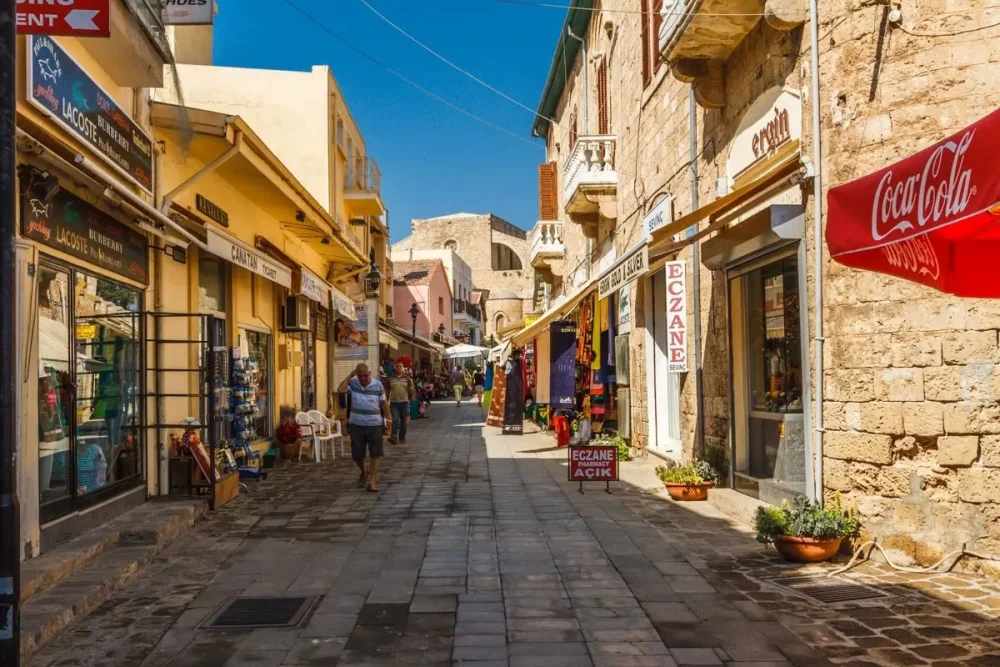Mediterranean sun, historical ruins, and a view of the Aegean Sea from the window of your own apartment — a dream? Quite a reality. Especially in 2025, when getting a mortgage in Greece for foreigners becomes not only possible but also more accessible. However, along with the opportunity come nuances: conditions, requirements, restrictions, document collection, all within the framework of the law and banking policy.
If you are planning to buy property in Greece on credit, it is important to understand where to start, what to expect, and how to prepare. We break it down step by step — honestly, without illusions, and strictly to the point.

Mortgage in Greece for foreigners: how does the process work?
Lenders in Greece provide mortgage loans not only to residents but also to citizens of other countries. However, lending always involves an individual approach. The main rule: the more stable the income and the cleaner the financial history, the greater the chances of approval.
A foreign borrower can expect a loan if they meet a number of requirements as an investor: having a legal income, solvency, documentary evidence of employment or ownership, as well as readiness for an initial contribution — without it, no one will give a loan.
Conditions of a mortgage in Greece: what to expect in 2025?
In 2025, the terms of installment payments depend on the specific institution, chosen property, and the client’s financial profile. The average interest rate ranges from 3% to 6%, which is quite competitive by European standards. However, this is far from the only factor to consider.
Mortgages in Greece rarely cover 100% of the property’s value. Typically, banks are willing to finance 60–70% of the property’s value. The rest is covered by own funds or other collateral. Below are the key parameters that lenders rely on when granting a loan:
- loan amount — depends on the property value and income level;
- down payment — usually 30% or higher;
- loan term — typically from 10 to 25 years;
- interest rate — can be fixed or variable;
- mandatory insurance — for both property and borrower’s life.
Mortgage rates may look attractive, but it is important to consider additional expenses. Some financial institutions offer an enticing interest rate for the first 2–3 years, followed by a recalculation. Pay attention to these details when signing the contract!
What documents are required for processing?
When applying for a mortgage in Greece, bureaucracy is not an obstacle but a mandatory step for foreigners. Regardless of the choice, the document package is roughly the same, and it needs to be prepared in advance. Let’s look at the list of documents usually requested when submitting an application:
- passport and translated copy (notarized);
- income statement from the workplace or tax return;
- bank statements for the last 6–12 months;
- preliminary purchase agreement;
- documents for the purchased property;
- if applicable — proof of residency or residence permit;
- tax residency certificate — if available;
- debt-free certificate — from the place of registration;
- translated lease contracts — if income is partially from renting;
- insurance policy — if the property is pledged;
- recommendations from other lenders — if there is a positive credit history.
All documents must be translated into Greek and notarized. Without a well-prepared document package, the process will stop right at the start.
Hidden costs: what to add to the property price when applying for a mortgage?
Many people only consider the purchase amount and the loan interest rate. However, in practice, mortgage expenses in Greece include many additional costs. Below are the mandatory expenses that should be taken into account in advance:
- notary services — usually 1–2% of the property value;
- government fee — depends on the type of transaction and region;
- bank commission — can be up to 1% of the loan amount;
- translator and lawyer services — especially when accompanying the transaction;
- insurance — for both the property and the borrower’s life;
- property valuation — mandatory for property loans;
- transaction registration — entering the property into the state register.
On average, additional costs amount to 8 to 12% of the property value. If you budget for them in advance, there will be no surprises at the finish line — and the process will go smoothly.
Where to apply: banks offering mortgages in Greece
Choosing a financial institution for a loan is not just about the interest rate. Especially when it comes to a deal involving a foreign citizen. In Greece, when applying for a mortgage for foreigners, important parameters include transparency of conditions, English language support, and willingness to consider income earned outside the country.
Some banks allow remote processing, which is critical if the borrower does not reside in the country permanently. It is also important to clarify in advance whether the financial institution accepts income statements from abroad and how willingly it cooperates with non-residents.
An important point is the feedback from other clients, especially foreigners. They will help understand how loyal the bank is, how quickly applications are processed, and the level of service at all stages.
There are many lenders in the country — from large international institutions to local establishments, and even within one city, conditions can vary significantly. Therefore, comparing, seeking preliminary advice, and, if necessary, being accompanied by a local lawyer or mortgage broker are reasonable steps before signing a loan agreement.
Can you get a residence permit through a loan?
The answer is unequivocal — no. The mortgage for foreigners itself does not provide grounds for obtaining a residence permit in Greece. However, if the purchase amount meets the requirements of the investment program (usually from €250,000), and the property is acquired without encumbrances, a request for a “golden visa” is possible. But a mortgage and residency permit are two parallel stories that intersect only under certain conditions.
Mortgage in Greece for foreigners: conclusions
A mortgage in Greece for foreigners in 2025 is not a myth or a marketing trick but a real instrument for buying property in a country that remains one of the most stable and attractive for living in the EU.

However, as in any other country, preparation, accurate calculation, understanding of processes, and attention to detail are important here. A transparent system, but with elements of national character — where punctuality, documentary evidence, and respect for procedures are valued.
If you are ready for bureaucracy, have information, and can calculate not only the interest but also the risks — financing in Greece can be your ticket to the Mediterranean.
 en
en  de
de  ar
ar  es
es  nl
nl  hi
hi  fr
fr  it
it  pt
pt  el
el 









